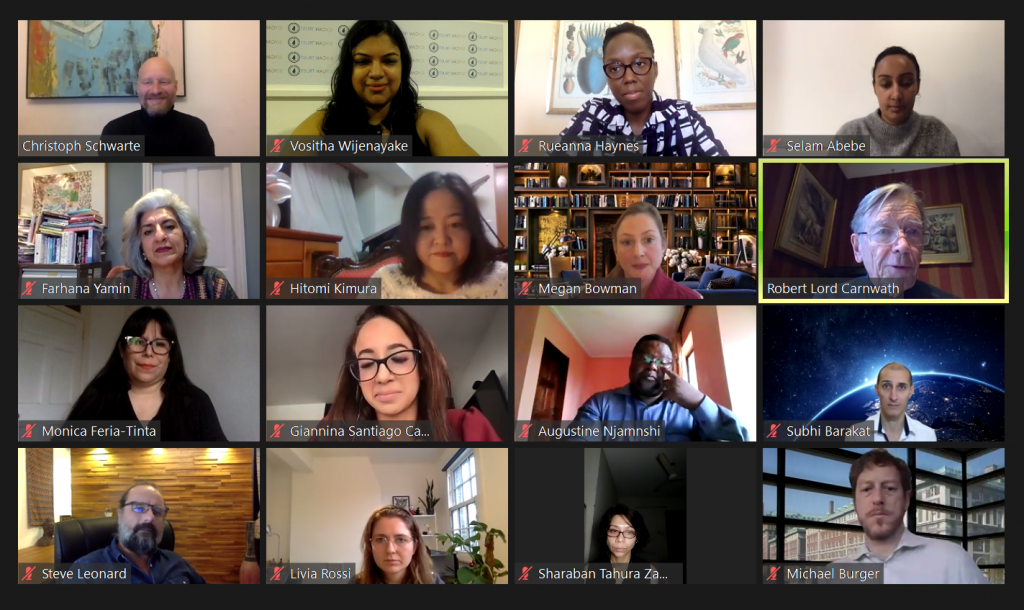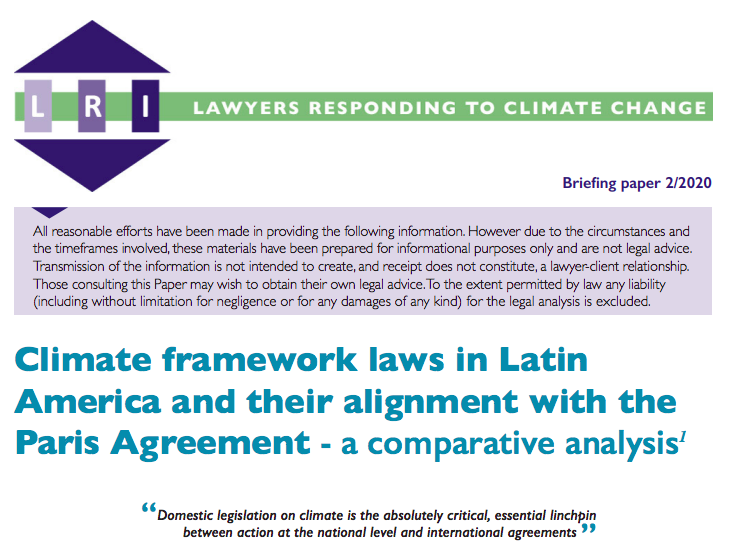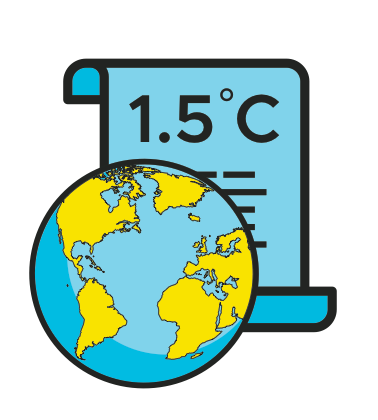31 March 2021
With the adoption of the Paris Agreement over five years ago and its implementing guidelines in 2018, countries’ focus is gradually shifting from the international arena to domestic implementation of their climate commitments. In practice, countries will pursue a range of approaches, depending on national circumstances and priorities, that are likely to include a combination of policies, laws and regulations. The sharing of information on these approaches, their advantages and disadvantages, lessons learnt as well as good practice can drive efficient and successful implementation and ultimately ambition.
The new LRI paper “Legislating the Paris Agreement in Africa” (https://legalresponse.org/wp-content/uploads/2021/03/National-Climate-Legislation-.pdf) published under the umbrella of the European Capacity Building Initiative (ecbi) considers the experience of four countries in sub Saharan Africa with one of these approaches: the development of climate change framework laws. Kenya was the first country in Africa to adopt framework legislation; Eswatini, Nigeria and Uganda are still working their way through this process but already some lessons have been learnt and initial observations can be made.
The crosscutting nature of climate change makes coordination of policy and legislative measures necessary if it is to be implemented effectively. Comprehensive framework laws that establish institutions with clear mandates and processes for the implementation of key activities can be conducive to this. An explicit reference to the new reporting requirements of the Paris Agreement may also help ensure countries fully comply with and benefit from its provisions. Framework laws can be a first step, but will need to be supplemented by further sector specific laws and regulations according to national priorities. Other tools, such as fiscal and economic measures, may also be part of the arsenal countries use.
Ensuring consensus and buy-in from all relevant stakeholders, from within and outside government will be key to the success of the legislative development process. Climate change impacts different communities and sections of society differently; having a nationwide consultation process that involves them all will be crucial too. Another important aspect of this process relates to the institutional framework: a review and clarification of the role existing agencies might have and need for new bodies will be necessary if they are to be fit for purpose.
The experience of the countries reviewed showed that the law development process also presents opportunities, e.g. for integrating innovative means of mobilising climate finance from the national budget, and including progressive provisions on, for example, gender and vulnerable peoples.
Finally, the study showed that applying the law, once enacted, can be challenging if there are competing and conflicting interests or priorities at play. Including provisions on timeframes for specific actions in the framework law may help address this to some extent but harnessing the political will to give effect to the provisions of the law will be key.





